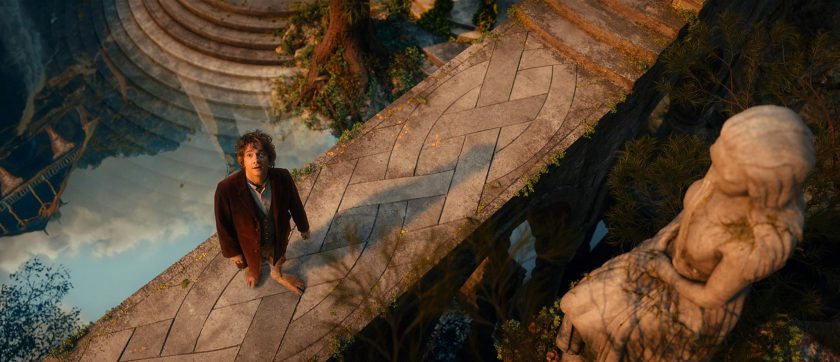
This is such a common question at the moment, I think it deserves its own blog post. The short answer is no – or, at least, not any time soon.
The Hobbit and The Lord of the Rings
The Battle of the Five Armies is not only the final instalment in The Hobbit trilogy, it will almost certainly be Peter Jackson’s last journey into Middle-earth. But this doesn’t mean that The Hobbit and The Lord of the Rings will never be adapted into films again. It is likely that one day, another ambitious director will pick up the enormous task of turning Tolkien’s books into motion pictures. However, given the huge success of the initial Jackson trilogy, it seems unlikely that any director will do so in the near future.
At present the film rights to The Hobbit and The Lord of the Rings are held by Warner Bros. They were initially bought by United Artists, who struck a deal with Tolkien’s publishers (Allen & Unwin) to purchase the rights to both books in 1969.
The Silmarillion
What about The Silmarillion? Is that not set in the Eldar days of Middle-earth? Yes, absolutely. But film rights to The Silmarillion have never been sold, and it remains unlikely that they ever will be.
Snippets of ‘Silmarillion’ material do, however, appear in The Lord of the Rings – mainly through songs and poems recited by characters, and the Appendices – and it is therefore possible that a film studio could push the limits of copyright by adapting these fragments.
It has been speculated that copyright protection on The Silmarillion will expire in 2043 and will then be free for anyone to adapt. Under UK law, copyright protection lasts for 70 years after the author dies (Tolkien died in 1973). However, if Christopher Tolkien is considered an author of the work (and there is no reason why he, as its editor, shouldn’t be) then copyright protection will last 70 years after his death. While the legality is therefore somewhat ambiguous, it is clear that The Silmarillion will not enter the public domain for a very long time.
As Peter Jackson suggests in his interview with the Daily Beast, it of course possible – though I’m more sceptical – that one day the Tolkien Estate will sell the film rights to other works by Tolkien including The Silmarillion:
But the truth of it is, they probably will one day [be made]. The Tolkien estate doesn’t want to release the films because it’s a decision that the current executors of the estate believe in. But at some point that may change, the executors may change, and those rights may suddenly surface.
When Tolkien sold the Hobbit and LOTR film rights to United Artists, The Silmarillion did not exist. That is, the book we know as The Silmarilllion was published after Tolkien’s death in 1977 following the painstaking work of his son, Christopher Tolkien, who brought together his father’s unfinished work to produce a single, coherent narrative. Tolkien had worked on his ‘Silmarillion’ cycle since the First World War, and over the course of his life it underwent significant change and transformation. The Silmarillion does not represent Tolkien’s final intention and – even though Christopher’s editorial influence was minimal – I don’t think it appropriate to further solidify this version of the legendarium by immortalising it on film. But that’s just my opinion!
But do not despair! As followers of the Tolkien Society Twitter account showed last month, this is #NotOneLastTime (have a look at the hundreds of “shelfies” everyone sent in!). And check out our list of books by Tolkien to see just how many there are to occupy our time!
So for now it’s good night from me, and it’s good night from him! Cheers, Pete!
UPDATE: My colleague, Shaun Gunner, has since taken a slightly different view.